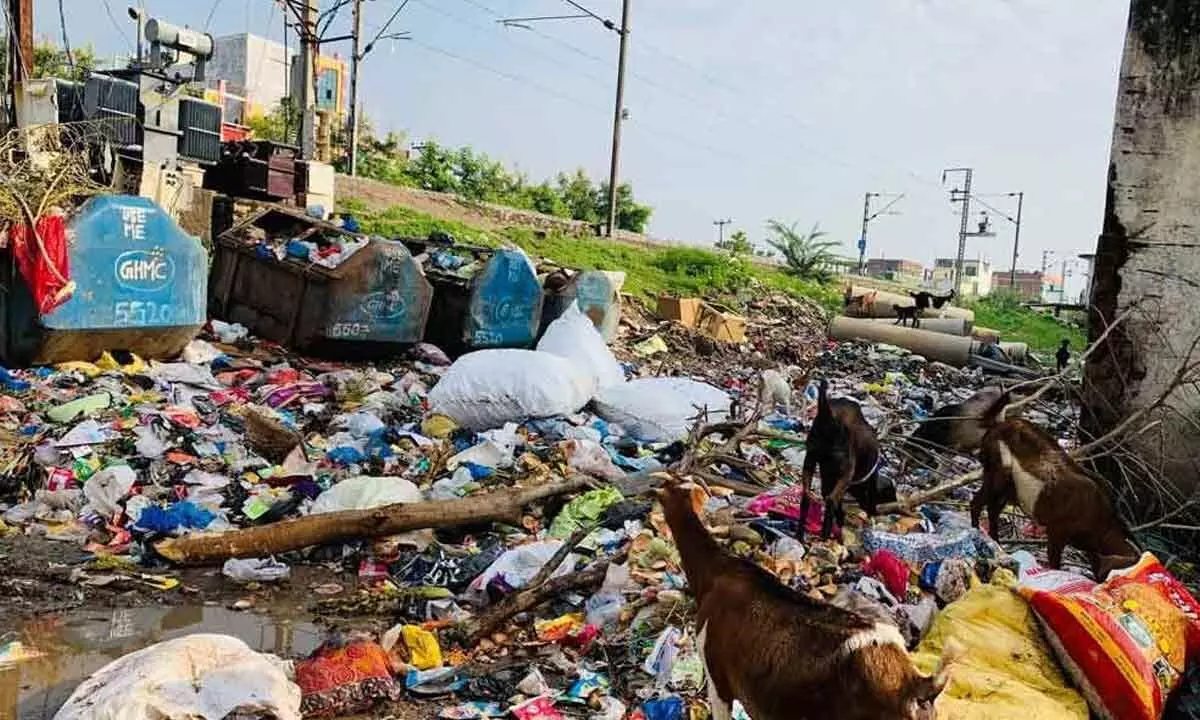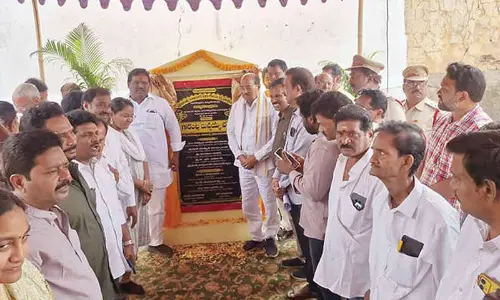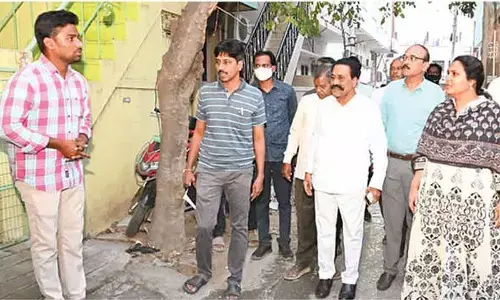Hyderabad: Poor sanitation breeds vector-borne diseases

Representational image
The major reason of the spread of vector-borne and water-borne diseases is poor sanitation in residential areas.
Hyderabad: The major reason of the spread of vector-borne and water-borne diseases is poor sanitation in residential areas. Old City has been witnessing most of the viral fever cases due to poor sanitation. Various Urban Primary Health Centres, Basti Dawakhanas and Private clinics are witnessing huge rush as people have been suffering from many vital diseases.
Vector-borne diseases are on a rise due to heavy down pour of rains and poor sanitation in several parts of the City. In many parts of the Old city, garbage is dumped in unscientific landfills or open lands adjacent to residential colonies, monsoon woes are common in all areas during monsoon, making the surroundings unsanitary.
According to reports, there is an increase in vector-borne diseases compared to previous year. However, the authorities have notified the State government to make dengue tests mandatory in all government hospitals.
With poor sanitation, mosquito menace has been increasing in several areas and residents especially children are suffering from viral diseases, said residents.
Residents have been requesting the civic body for lifting the garbage, initiate fogging and allot sanitation drives, but all fell into deaf ears. Even after rains, there is no lifting of garbage for the last 3-4 days, even after a week of Eid, no animal wastage was lifted in various areas.
Mohammed Ahmed, social activist in Old city said, "Several complaints have been registered offline and online and we have also took up this issue to Twitter, but there has been no initiative taken yet to solve the issue."
He said that various UPHCs, Basti Dawakhanas, and private clinics are witnessing huge rush. "Especially children with low immunity are suffering from fever, and as they consult the doctor, they are been asked to undergo dengue and malaria tests. The municipal corporation must take an initiative and hold sanitation drives to control the viral and disease outbreak," added Ahmed.
Though the municipal corporation takes measures in the monsoon to end mosquito breeding across the city, mosquito menace continues to trouble citizens due to several factors. The major challenges faced by the civic body are the management of garbage and drainage systems which turn into breeding grounds for mosquitoes when neglected for days.
However, more than 60 per cent of the Strategic Nala Development Programme (SNDP) works are pending and dwellers residing near nalas and drainage lines are scared due to increase of mosquito menace and a risk of vector borne diseases.
Some of the areas which are considered hotspots of such fevers are located in Charminar, Chandrayangutta, Falaknuma, Bahadurpura Yakutpura and Santosh Nagar circles of the Greater Hyderabad Municipal Corporation (GHMC). Besides nalas, the areas at Musi riverbank and water bodies are considered to be safe haven of mosquitoes.
"Those who live near open nalas, Musi river and water bodies are at high risk. The water which gets accumulated at garbage points turn into breeding grounds. Children are already suffering from fever in many places and if the GHMC ignores sanitation, there is a rise of risk of dengue and malaria diseases to spread," pointed Mohammed Abdul Rahman, another activist.














